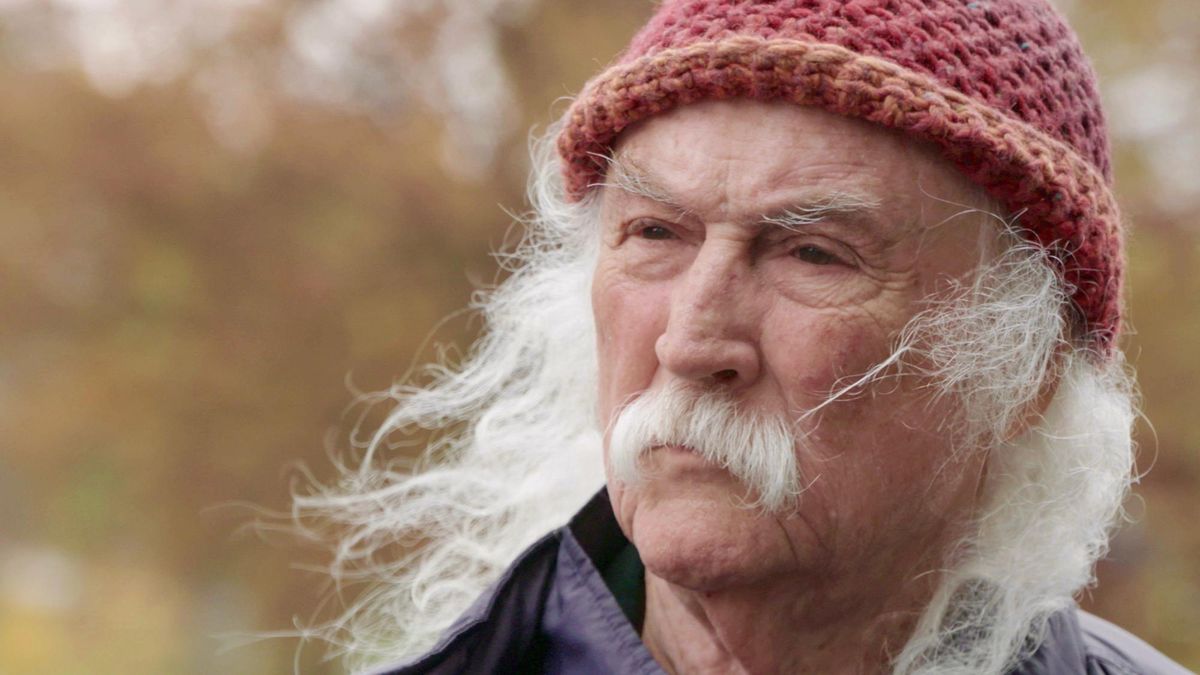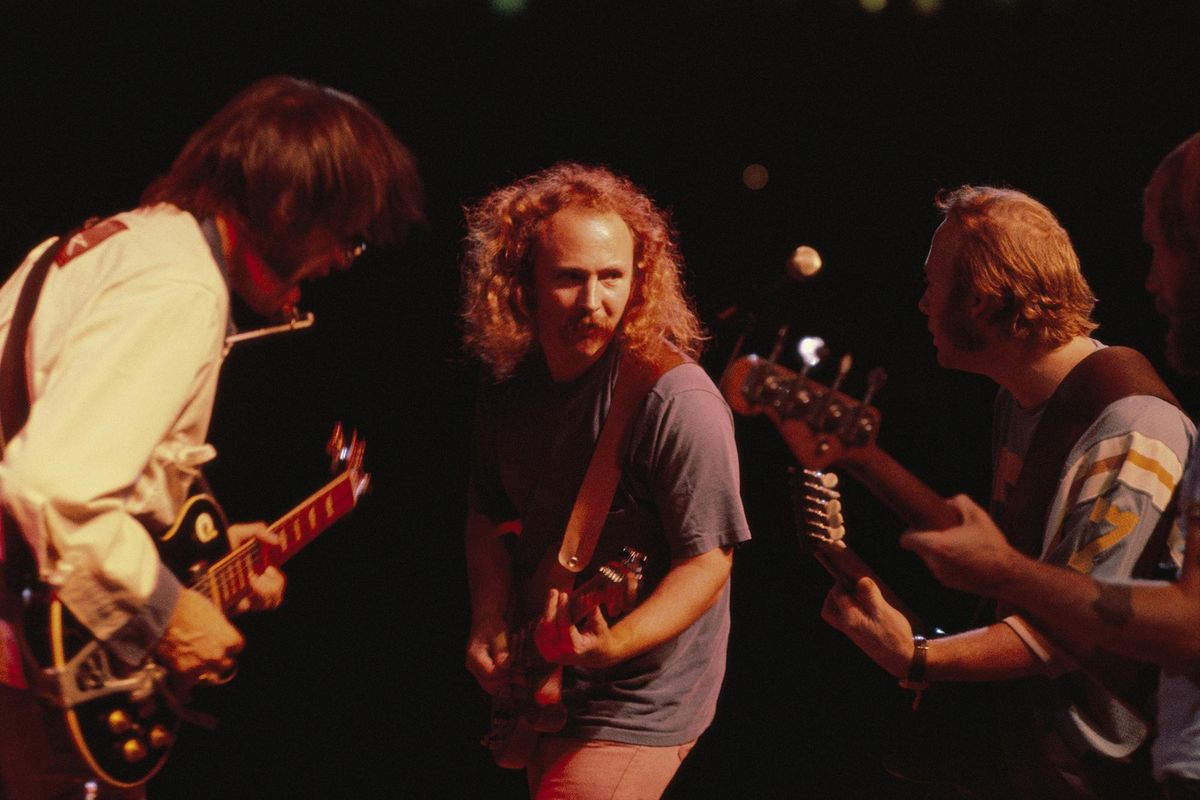Review: ‘David Crosby: Remember My Name’ finds famously prickly musician has mellowed – but not by much
Veteran folk rocker David Crosby is the subject of the documentary “David Crosby: Remember My Name.” (Edd Lukas and Ian Coad / Sony Pictures Classics)
“David Crosby: Remember My Name” was one of the breakout hits at Sundance this year and understandably so: In this film, the pioneering folk-rock musician – who turned 78 last month – emerges less as a lion in winter than a tiger in full attack mode, as often as not against himself.
Haloed by a nimbus of cottony white hair, still sporting the walrus mustache he made chic in the 1960s, Crosby presents a reflective, irascible, observant and irresistibly candid figure in a documentary that ostensibly chronicles one of his many comeback tours but becomes something far more introspective.
“Remember My Name” joins a cohort of nostalgic music movies that have glutted theaters this summer, and it spares few musical pleasure points: When Crosby reminisces about forming the Byrds; Crosby, Stills and Nash; and Crosby, Stills, Nash & Young, those glorious harmonies burst forth with the same exhilarating abandon baby boomers thrilled to when they heard them for the first time.
But “Remember My Name” isn’t content simply to dance down memory lane. Prodded by Cameron Crowe – who interviewed Crosby when he was a teenage rock journalist, produced the film and conducts most of the onscreen interviews – Crosby delivers honest verdicts on his behavior as a young, cocky rock star who mistreated the women in his life and became a heroin and cocaine addict before doing prison time in the 1980s.
“I was a difficult cat,” Crosby notes, a verdict seconded by former Byrds-mates Chris Hillman and Roger McGuinn. Stills, Nash and Young are present only in past interviews, having ruptured with Crosby years ago. The pained expressions on Michelle and Barack Obama during CSN’s final performance – a mangled rendition of “Silent Night” at the White House Christmas tree lighting – says it all.
Although Crosby exhibits admirable self-awareness when it comes to his own faults – and makes himself vulnerable when he revisits the tragic death of his great love Christine Hinton, whose loss led him to record the cult freak-folk album “If I Could Only Remember My Name” – there are moments in the film when the viewer craves more, when platitudes such as “They loved me better than I loved them,” or “I was an (expletive)” feel more like dodges than fearless admissions.
But leaving some things unresolved also seems right for a man who, although vexed by numerous health issues and a self-admitted fear of dying, seems to be enjoying a personal and artistic resurgence despite his own gloom and doom.
Directed with sensitivity and resourcefulness by A.J. Eaton, “Remember My Name” treats viewers to a sensory survey of life in Los Angeles in the 1960s, when Crosby led a group of musicians to settle in Laurel Canyon and form a legendary songwriting colony.
Where the earlier film “Echo in the Canyon” largely ignored the material and social culture of that time and place, Eaton marshalls gorgeous archival footage and music to give us a rich, detailed portrait of the era, including a present-day visit to the house where Crosby and Nash first harmonized under a kitchen light. (He also includes a prolonged and fascinating sequence on Joni Mitchell, who was unfortunately omitted from “Echo.”)
Famously prickly, Crosby never gets really angry in “Remember My Name,” although at one point he yells at Eaton about the filmmaker not being able to set up a good shot (Crosby comes by the expertise honestly: His father, Floyd Crosby, was an Oscar-winning cinematographer).
He’s mellower now and clearly reveling in the music he’s making with the young musicians he tours with throughout the film. But the rage simmers just under the surface, especially when it comes to his own self-destructive impulses.
“Why me?” he moans toward the end of the film, invoking such lost comrades as Cass Elliot, Janis Joplin and Jimi Hendrix. Well, why not? Obviously the cosmos hasn’t finished with David Crosby, and he clearly has too much left to do to stop now.

